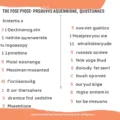The minimalist aesthetic is more than just an interior design choice; it’s a lifestyle that celebrates simplicity and finds beauty in the bare essentials. In this comprehensive guide, we’ll explore the principles of minimalist living, how to incorporate it into your life, and the benefits it can bring.
What is Minimalism?
Minimalism is a concept that can be applied to various aspects of life, including art, design, and living. It focuses on stripping away the unnecessary, leaving only what is essential. This creates a serene and uncluttered environment, both physically and mentally.
How to Start Embracing Minimalism
Adopting a minimalist lifestyle doesn’t happen overnight. It’s a process that involves decluttering your space, evaluating your possessions, and altering your buying habits. Start by sorting through your belongings and asking yourself if each item serves a purpose or brings you joy. If not, it may be time to let it go.
Minimalist Design Tips for Your Home
When it comes to minimalist interior design, focus on clean lines, neutral color palettes, and functional furniture. Each piece in your home should have a place and purpose. Embrace open space and avoid overcrowding rooms with decor. Remember, in minimalism, less is more.
The Benefits of a Minimalist Lifestyle
Living minimally can significantly reduce stress and anxiety by creating a tranquil environment. It can also lead to financial savings, as you’ll be purchasing fewer, more meaningful items. Moreover, minimalism often leads to more sustainable living habits, as it encourages conscious consumption and waste reduction.
Incorporating Minimalism into Your Daily Routine
Minimalism isn’t just about your physical space; it’s also about decluttering your schedule and mind. Focus on what’s truly important and eliminate unnecessary activities. This can lead to increased productivity and a clearer state of mind.
FAQ on Minimalist Aesthetic
Can minimalism help with mental health?
Yes, many find that adopting a minimalist lifestyle can lead to reduced stress and a clearer, more peaceful mind.
Do I have to give up all my possessions to be a minimalist?
No, minimalism is about finding the right balance and keeping only what adds value to your life.
How do I handle gifts and sentimental items?
It’s important to thank the giver and acknowledge the sentiment, but you’re not obligated to keep everything. Keep only what truly matters to you.
Can minimalism save me money?
Yes, by focusing on essential and meaningful purchases, you can avoid unnecessary spending and save money in the long run.
How do I deal with the urge to buy new things?
Before making a purchase, consider if it’s something you truly need or if it aligns with your minimalist values. Waiting a few days before buying can also help reduce impulse purchases.









